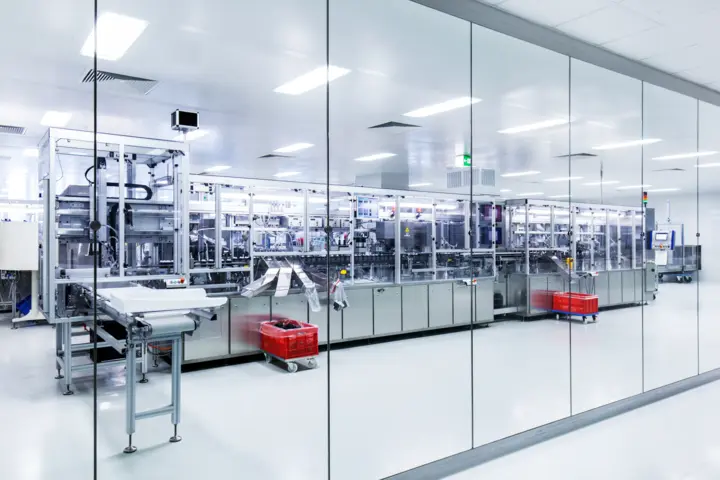A large proportion of Riegler's ongoing production takes place on highly integrated and fully automated lines
Maximum quality: that is the mandatory requirement for manufacturers of plastic systems used in diagnostics and the medical sector. Cavity pressure sensors from Kistler combined with our ComoNeo process monitoring system are helping this medical technology provider to manufacture its products safely and efficiently – and what's more, Kistler's technology also supports the company's ongoing development work.
Much more than a job: as soon as Christoph Merhold of Riegler GmbH & Co. KG starts talking about his work, his heartfelt commitment shines through. Since September 2017, he has handled Key Account Management for a leading pharmaceutical company at Riegler, a plastics specialist located in southern Hesse, Germany. 'Personally, I believe it's important that the products we manufacture should be of very high quality so that they can serve their purpose – which is to help people. What we do here is rather different from what happens in the automotive industry, for example,' he emphasizes. This young engineer is also responsible for innovation and ongoing technical development on behalf of the customer – every year, new products with large numbers of individual parts are added to the range.
Riegler is a midsize company that belongs to the global Wirthwein Group. With 300 employees at three sites, it produces over one billion plastic parts and systems every year: all of them go to about 500 customers in application areas such as diagnostics, medical technology, pharmaceuticals and cosmetics. And the trend is continuing to move upwards: two new clean rooms were commissioned recently for plastics production to even higher quality standards, and further expansions are already being planned. Merhold explains: 'Our customers benefit from our services throughout the entire vertical production range – from single products manufactured in large quantities, assembly, toolmaking and contract manufacturing through to joint development, qualification and validation.'
Many of the plastic parts produced by Riegler are disposable products that doctors and medical technicians need every day: examples include primary packaging, injectors and syringe systems, along with a host of other application instruments. Riegler's specialties include screw closures such as single-use caps for bottles or reagent vessels. 'Closures, in particular, are anything but trivial: they call for special molds with the appropriate degree of precision to protect the contents – and at the same time, we have to make sure that the opening mechanism functions as intended,' Merhold notes.







![Enhanced safety for patients [object Object]](https://kistler.cdn.celum.cloud/SAPCommerce_Document_Preview/961-086e.webp)